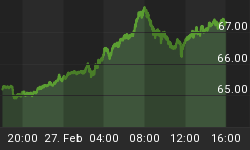Gold Down vs. "Safe Haven" Dollar as Regulatory Changes Threaten Futures Dealing, Indian Imports
THE PRICE OF GOLD for US investors fell 1.2% in London on Monday morning, but held flat against other major Western currencies as all markets bar government bonds fell against want one dealer called the "safe haven" Dollar.
Stocks dropped hard in Asia and Europe, driving the MSCI index of world equities to a two-week low.
Energy prices sank, knocking 5% off both natural gas and US oil contracts. Silver lost 2.7%, copper dropped 4.3% and food-stuffs lost almost 3% on average.
On the currency markets, the Euro dropped to a two-week low beneath $1.39 to the Dollar.
"The slide in oil prices may keep Gold Prices subdued," reckons Pradeep Unni at Richcomm Global Services in Dubai, quoted by Bloomberg.
"Fresh buying could be limited and slow. It's ideal to be on the selling side."
Typically seen as moving in tandem, the daily correlation between US-Dollar Gold Prices and the Euro/Dollar exchange rate has averaged 0.67 since the start of May, stronger than its 10-year average of 0.50.
Between New Year's Day and the end of April, gold showed a daily correlation with the single currency of just 0.02, rising together with the Dollar to spark a series of new record highs against the Euro, Sterling, Canadian, Australian and Swiss currencies.
"The inverse relationship to the US Dollar has clearly returned for the precious metals," says one London dealer today, pegging support at June's low of $913 an ounce.
Commerzbank also pegs support at $913, as does Scotia Mocatta.
"If equities remain weak through US trading," says chief metals strategist John Reade at UBS in London, "[and] combined with further Dollar strength, then gold could target the recent low at $913-$914 an ounce."
Last Friday's weekly report of Gold Futures positions remains delayed by the long Independence Day weekend, but US futures brokers could be forced to close, industry insiders tell today's Financial Times, if regulators push ahead with increased capital requirements.
Hiking by 25% the cash that brokers must set aside to cover possible client losses, the Commodity Futures Trading Commission (CFTC) would cost them "hundreds of millions of dollars" according to Newedge, one of the world's largest commodity brokers.
"We believe that [brokers] that do not carry out nor have access to large amounts of capital in excess of current requirements - but are otherwise financially stable as a result of customer margin deposits and low-risk business models - would be forced to go out of business," it told the paper.
Here in London on Monday, City watchdog the Financial Services Authority (FSA) said it wants to treble the fines charged to wayward firms, setting a minimum penalty of £100,000 ($161,000).
The FSA also wants to fine individual staff up to 40% of their pre-tax income, including bonus, if found guilty of abuse.
Over in India meantime - the world's hungriest gold market, where the Sensex stock index dropped almost 6% on Monday - the government announced higher import duties on both gold and silver bullion.
"As it is business was bad. This will make it worse," said president of the Bombay Bullion Association, Suresh Hundia to Reuters.
Finance minister Pranab Mukherjee wants to double import duties on Gold Bullion to 200 Rupees per 10 grams (US$12.90 per ounce). Silver duty will double to Rs 1,000 per kilo (US65¢ per ounce).
India's gold imports had already dropped 57% over the first 6 months of this year. Unless demand picks up on falling prices, says the BBA's Hundia, demand could fall a further 25%.
Last week saw the crucial summer monsoon rains finally cover India, encouraging planting and potentially helping autumn gold sales if the harvest is good as October's Diwali festival draws near.
"Certainly gold sales would get affected due to the monsoon factor," said one Mumbai bank-dealer to the Economic Times, forecasting a 20-30% drop in gold sales before the rains arrived.
"With equities under renewed pressure, Gold ETF holdings might rise once again," says Walter de Wet at Standard Bank today, examining the role played by gold-tracking shares traded on the major Western stock markets.
"We believe that gold will compete against equities for investment money [and] there is still plenty of systemic risk in the financial system, and macroeconomic growth concerns remain. We view it as encouraging that ETF holdings have remained robust despite equities having gained 32.5% since mid-March. This has supported the Gold Price."















